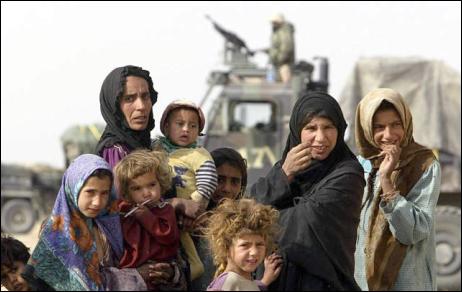Military role in Iraq not under consideration
Military role in Iraq not under consideration
In an interview given in the wake of the attack on UN headquarters in Baghdad and published in the August 21 edition of the "Süddeutsche Zeitung" Foreign Minister Joschka Fischer reaffirmed that "a military role is not under consideration".

Fischer commented that the August 19 attack in which 21 people were killed was directed not only against the United Nations organization as such but against the international community as a whole. He noted that the challenges being faced in post-war Iraq are enormous. "The task of stabilizing, pacifying, and rebuilding the country is perhaps bigger than many of us imagined," Fischer remarked.
Fischer went on to say that responsibility for stability in Iraq lies with the coalition forces led by the United States and Great Britain, adding that this was clearly defined by the UN Security Council in Resolution 1483. He noted that the German government would have liked to see the UN play a central role but that it has had to accept the fact that a number of partner countries do not share that view.
With regard to the German role in Iraq Fischer said: "We are providing humanitarian aid and will continue to do so. We do not rule out providing assistance in the civilian sector. The question of a military role is not under consideration."
Germany's role in Afghanistan
In the interview Fischer also addressed the German government's position on the situation in Afghanistan. He noted that it has become evident that the process of building security structures is going to take longer than anticipated, adding that the timetable established for the Petersberg Process will need to be adhered to despite this. "What is needed here is not a call for new concepts but rather the systematic and active implementation of existing ones." He said the objective is to achieve political stability and a sufficiently stable balance of power in Afghanistan to ensure the country a peaceful future. He indicated that civilian reconstruction teams are in the forefront of German involvement there and that security is being provided for them by a small but effective military component. Fischer noted that this is a national contribution to an international task, adding that the only reason Germany has a special role in Afghanistan is because "the Afghans trust us".
Stabilization of regional trouble spots
Fischer went on to say that the strategic question for European and Western security in the 21st century is based on the challenge being faced in the entire Islamic crisis belt from Indonesia to the Maghreb countries, adding that "the German government needs to help address this challenge." He stated that the new threat scenario of religious hatred, national rivalry, weapons of mass destruction, and terrorism is going to require new responses. He noted that a policy of prevention will be needed and that the core element of this policy must be the stabilization of regional trouble spots.


 World Economic Forum: Gender Gap Closes At Fastest Rate Since Pandemic
World Economic Forum: Gender Gap Closes At Fastest Rate Since Pandemic KidsRights: KidsRights Index 2025 Now Available
KidsRights: KidsRights Index 2025 Now Available CNS: We Can Do Better So That All People With HIV Live Healthy Normal Lifespans
CNS: We Can Do Better So That All People With HIV Live Healthy Normal Lifespans John Divinagracia, IMI: The Evolution Of Mankind’s First Voice - How Drums Shape The Human Story
John Divinagracia, IMI: The Evolution Of Mankind’s First Voice - How Drums Shape The Human Story Deep Sea Mining Campaign: New Report Exposes Impossible Metals’ Claims As Scientifically Baseless
Deep Sea Mining Campaign: New Report Exposes Impossible Metals’ Claims As Scientifically Baseless Pacific Whale Fund: First Māori Voice Opens UN Oceans Conference, Pushing For Marine Legal Rights
Pacific Whale Fund: First Māori Voice Opens UN Oceans Conference, Pushing For Marine Legal Rights